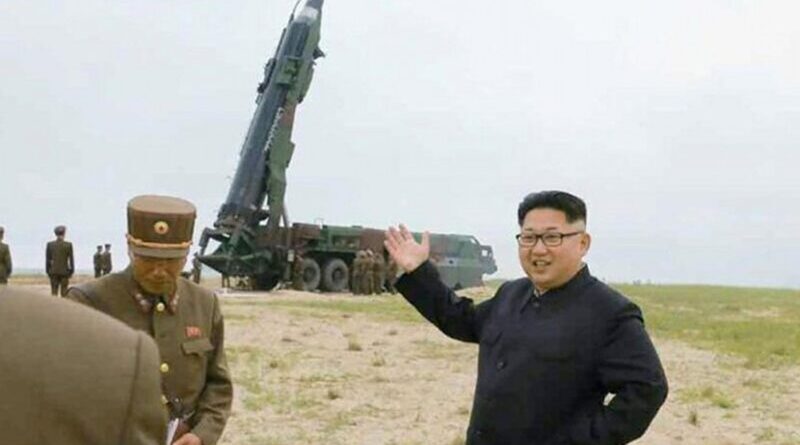A Game Of Chicken Between US And North Korea – OpEd
By Maria Gioia Zurzolo
Whoever had the chance to deal with security studies has probably heard of the ‘chicken game’. It models two drivers who are both headed for a single-lane bridge from opposite directions. The first to swerve away yields the bridge to the other. As they approach the bridge, mutual destruction becomes more and more imminent. A crash would be the worst outcome for both players, and each risks it in attempting to secure their best outcome. They have nothing to gain; only pride and credibility stops them to backing down.
Game theory contributes to a better understanding of war strategies as well the potential outcomes of a nuclear-armed conflict. The high cost of a nuclear conflict should prevent actors from deploying nuclear weapons, shifting their use toward a means of coercive diplomacy instead. As the Nobel Prize winner Thomas Schelling argues, nuclear power should be an efficient way to induce antagonistic states to back down because of the destructive escalation of a potential nuclear conflict.
In light of that, it would be an irrational choice to engage in a nuclear exchange. However, deterrence only works when a nuclear state presents a credible nuclear threat.
So what then is going on between Washington and Pyongyang?
For many years, North Korea has been a case study in analyzing the behavior of a state actor transitioning from non-nuclear to nuclear-armed status. Its political goals have always been state survival and protection of national sovereignty. As a matter of fact, it could be said that North Korea’s aspiration of going nuclear might be caused by the status of isolation in which the country has always been relegated. The perception of a security dilemma drove North Korea to undertake the path to get nuclear power in order to balance the threat posed by the United States as well as the entire international community.
North Korea’s threat perception increased after the Iraq war, when the U.S. intervened under the pretense that Iraq possessed nuclear weapons. A functional nuclear program would have deterred a hostile policy from the U.S. as well as any attempt at regime change in the country. Therefore, the current situation is a consequence of years of tensions. In light of North Korean missiles launches, President Donald Trump affirmed that military solutions are fully in place to counter any threat from Pyongyang, but it seems that US declarations are not acting as a deterrent to push North Korea to step down. On the contrary, the North Korean government has accused the White House of aiming for war and reaffirmed that it is ready to respond with any powerful measure necessary.
Considering Kim Jong-un to be a crazy and irrational statesman, referring to him as a ‘Rocket man’ without taking his goals seriously – this is just damaging. There are different things at stake here, not only the credibility of Washington as a leading power, but the threat to its allies in the area, namely South Korea and Japan.
The North Korea crisis is the United States’ own game of chicken. On one hand, there is credibility at stake, but on the other one there is the potential for a terrible escalation of the conflict. We could assume that there is no reason why North Korea would order a first strike, thus bringing about its own complete destruction. In that case, Kim will maintain his nuclear program to counter any provocation by the U.S. and South Korea. It is ambitious to come to the conclusion that Kim will not order any first strike. As the North Korean leader said, they have the military tools to reach the Island of Guam, but if that happens, the U.S. would probably respond with a conventional military attack that may be terrible not only for North Korea but for the South as well.
As Russian President Putin pointed out, tensions and threats are just building a sort of ‘military hysteria.’ Putin has stressed that the situation should be solved using diplomacy instead. Reacting aggressively to intimidate Kim seems to be counterproductive. The nature of North Korean provocations stems from its long-term goals: the protection of national sovereignty and international recognition of its own security needs.
Overall, if Kim places regime survival above all, it seems unlikely that he will order a first nuclear strike. He is using his nuclear power in a defensive way, and only time will tell who is going to be the ‘chicken’ in this nuclear game – a game that is better not to played for too long.
The opinions, beliefs, and viewpoints expressed by the authors are theirs alone and don’t reflect any official position of Geopoliticalmonitor.com, where this article was published.

